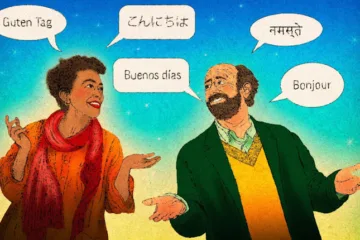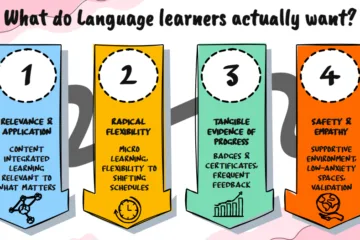As you know, the English language is an evolving, ever-changing construct. The words we speak and write can change in meaning, become forgotten, or morph into something quite different. This is one of the reasons that language, and linguistics, is such a challenging discipline.
Merriam-Webster Dictionary, one of the leading resources for English, officially added 840 words in September 2018. While not all the words are new in other cultures, or among those of us who use slang and abbreviated terms, they are certainly new to the dictionary. The words now have a status that they did not possess before.
This is important because slang often enters our lexicon but may never become so common that it enters the dictionary. The sheer number of words added this year indicates that English is rapidly growing. The broader scope of language, with digital access through social media sources like Twitter and Facebook, means an increased awareness and acceptance of terminology and vocabulary from all facets of our global society. Embrace the change, or be left behind.
Words like iftar, the end-of-day meal eaten by Muslims to break the fast during Ramadan, were added. So was gochujang, a Korean chili paste now beloved by many foodies. They also added guac, an abbreviation of guacamole. We are also fond of mise en place, a French term for setting out your ingredients before the start of the cooking process.
Here are some of the other words recently added, particularly those which are commonly used.
Adorbs – an abbreviation for adorable. “That video of the woman covered by kittens is positively adorbs!”
Bingeable – An adjective for the type of television show that you sit and watch multiple episodes of at one time. “If you’re looking for something bingeable, try that new thriller on Amazon.”
Biohacking – An unconventional biological method, such as gene splicing, used to better someone’s condition or lifestyle. “The clinic was able to add years of quality living to him through some experimental biohacking technique.”
Bougie – An abbreviation for the bourgeois, meaning someone who is preoccupied with wealth and status. “That guy she’s dating is a real bougie, isn’t he?”
Fave – An abbreviation of the word favorite. This is a slang term which has been in popular use since the 1930s! “He’s my absolute fave singer!”
Fintech – Technology and businesses serving the digital and online financial communities. “His new job in fintech keeps him very busy.”
Generation Z – Born in the 1990s or 2000s? You are Gen Z. “One of the nicest people I know identifies herself as Generation Z.”
GOAT – An acronym for Greatest of All Time. It specifically applies to New England Patriots quarterback Tom Brady, but is now used in any context. “When it comes to NFL quarterbacks, the discussion is closed. Tom Brady is the GOAT.”
Hangry – If you are irritable because you haven’t eaten, you’re hangry. “Don’t even try talking to him right now, he’s hangry.”
Hophead – This old, outdated noun meaning a drug addict is finding new life as a word meaning a beer enthusiast. “He’s such a hophead that he’s starting his own brewpub.”
Latinx – This is a gender-neutral word to identify someone of Latin American origin. “My co-worker is a Latinx.”
Mocktail – This is another word that I’ve heard for years. It refers to a drink which looks like a cocktail but contains no alcohol. “Give me the keys, and order me a mocktail. I’ll be the designated driver.”
Rando – A disparaging term for a random person who just appears without any introduction or apparent reason. “We were having a quiet drink at the bar when this rando showed up and tried to buy us a drink.”
TL; DR – An abbreviation for the phrase too long; didn’t read. “He sent me his blog for review, so I replied, TL; DR.”And before you say that about this blog, we’ll end it here. Do you have any words that you think belong in a dictionary? Let us know!



0 Comments